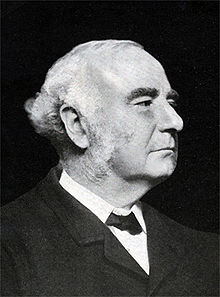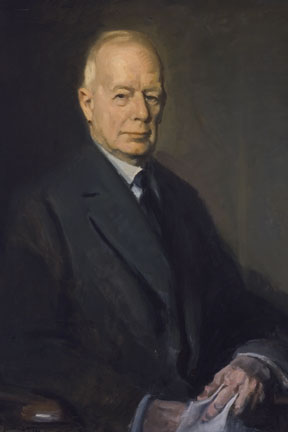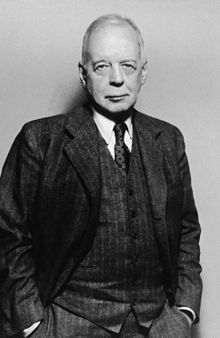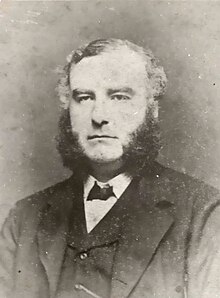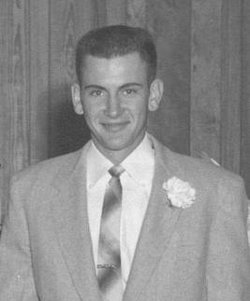Alfred Newton
Alfred Newton ( born June 11, 1829 in Geneva, Switzerland, † June 7, 1907 in Cambridge, England ) was an English zoologist and ornithologist.
Life and work
Newton studied at Magdalene College, Cambridge, where he graduated in 1853 with a BA and received his MA. In 1854 he undertook on behalf of Magdalene College traveled extensively in many regions of the world, such as Lapland, Iceland, Svalbard, the West Indies and North America. In 1866 he became the first professor of zoology and comparative anatomy at Cambridge, a position he held until his death.
1858 Alfred Newton belonged to the founders of the British Ornithologists ' Union. He wrote many books, including Zoology of Ancient Europe ( 1862), Ootheca Wolleyana (1864 started ), Zoology (1872 ) and A Dictionary of Birds ( 1893-1896 ). In addition, he wrote many articles for scientific societies and was editor of the journals Ibis (1865-1870), The Zoological Record (1870-1872) and Yarrell 's British Birds ( 1871-1882 ).
Newton spent some time with the study of extinct birds of the Mascarene Islands, from where his brother Sir Edward Newton sent him bone material. This included the Dodo and the Rodrigues Solitaire. In 1872 he was the first person who described the Rodrigues Parakeet ( Psittacula exsul ), a species that became extinct around 1875.
Newton died in 1907 in Cambridge and was buried in the cemetery in Huntingdon Road Cambridge.
Honors
1870 Newton was elected as a member ( "Fellow" ) to the Royal Society, which honored him in 1900 " for his outstanding contributions to ornithology and the geographical distribution of animals " with the Royal Medal. In the same year he was awarded the Linnean Medal of the Linnean Society of London.

